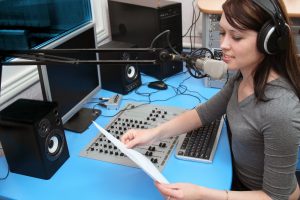Tip of the Week - 2016 08 25: Pronouncing Difficult Names and...
 It happens to every announcer and every news reader. You are given a script to read, and it’s got some words or names…that you couldn’t pronounce to save yourself!
It happens to every announcer and every news reader. You are given a script to read, and it’s got some words or names…that you couldn’t pronounce to save yourself!
First of all, it’s important to get these right. You don’t want to look silly, or make your station look stupid…and you don’t want to insult the people whose names you are grossly mis-pronouncing!
So, what do you do? Here are a few tips.
If it’s the name of a local person, simply phone them (or someone close to them) and ask how to pronounce their name.
If it’s a foreign word/name, do you or anyone else at the station know someone who is a native speaker of that language? Is there an embassy or consulate of that country in your city?
Is the word/name mentioned in a You Tube video? Perhaps you can find it in an interview.
The Internet has some useful resources. I have found by typing “Pronounce” followed by the word/name, there is very often some Wikipedia page, web site or you tube video that can help. In fact, these three channels may be a useful start:
Emma Saying
https://www.youtube.com/user/EmmaSaying
Words 101
https://www.youtube.com/channel/UCLDoMLWujXb7fVUfCavFWZQ
Pronounce Names
https://www.youtube.com/user/ThePronounceNames
The key is – once you hear the word/name, practice saying it, then write it down phonetically on your script. Dividing it into syllables, and identifying the stressed syllable is very helpful. For example:
Israeli PM Benjamin Netanyahu is actually pronounced: Ben/ya/MIN Ne/tan/YA/hu
The US state of Arkansas is actually pronounced: AR/kin/saw
One final critical step. Don’t just practice the word, practice it in the context of the sentence, so your brain and mouth can get used to the co-ordination required. Once you have got it right, say it with authority. Even if you haven’t got it perfectly correct, your listeners will defer to you as the pronunciation guru!
Now, here’s an example of an exception. Swedish furniture retailer Ikea is pronounced Ee/KAY/ya in Sweden. However, in English speaking countries, it is known as I/KEY/a. If you say it the Swedish way, your listeners may have problems understanding what you are saying, or wonder why you are saying it that way (“does he have a speech impediment or something?). In cases like that, it may be better to use the local pronunciation.
Sew, go a/HEAD and kim/MU/ni/kate, and HA/ppy BROAD/kas/ting.
: Blogs